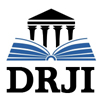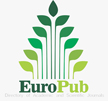APPLICATION OF STAD-TYPE COOPERATIVE LEARNING MODEL TO INCREASE STUDENT LEARNING OUTCOMES
Abstract
This study aims to implement a cooperative learning model of the Student Teams Achievement Division (STAD) type in improving student learning outcomes in the Basic Automotive Engineering (PDTO) subject of Motorcycle Engineering and Business Department at Setia Bhakti Vocational School, Cilawu Garut for the 2022/2023 academic year. This Classroom Action Research (CAR) uses the Kemmis and Taggart research model. The research flow consists of (1) Planning, (2) Action, (3) Observation, (4) Reflection. The subjects of this study were students of class X TBSM SMK Setia Bhakti, Cilawu Garut, totaling 25 students. The research data were obtained using student activity observation sheets, interviews with PDTO subject teachers and with learning outcomes tests. The technique used to analyze the data is a qualitative descriptive technique. The results of this study indicate an increase in the percentage of completeness of PDTO learning outcomes for students of class X TBSM SMK Setia Bhakti in each cycle. In Cycle I, the percentage of students' learning completeness was 56% with an average grade of 74.48. In the second cycle the percentage of students' learning completeness reached 93.75% with an average grade of 89.14.
Keywords
Full Text:
PDFReferences
Aditya, D. Y. (2016). Pengaruh penerapan metode pembelajaran resitasi terhadap hasil belajar matematika siswa. SAP (Susunan Artikel Pendidikan), 1(2), 165-174.
Ardila, A., & Hartanto, S. (2017). Faktor yang mempengaruhi rendahnya hasil belajar matematika siswa MTS Iskandar Muda Batam. PYTHAGORAS: Jurnal Program Studi Pendidikan Matematika, 6(2), 175-186.
Chaeroni, Y., Hamdani, N. A., Margana, A., & Rahadian, D. (2020). Penerapan i-spring suite 8 pada model pembelajaran improve untuk meningkatkan kemampuan pemahaman dan pemecahan masalah matematis peserta didik pada pokok bahasan program linear di tingkat sekolah menengah. Gunahumas, 2(2), 357-386.
Fiteriani, I., & Baharudin, B. (2017). Analisis perbedaan hasil belajar kognitif menggunakan metode pembelajaran kooperatif yang berkombinasi pada materi IPA di MIN Bandar Lampung. TERAMPIL: Jurnal Pendidikan dan Pembelajaran Dasar, 4(2), 1-30.
Gusniar, G. (2014). Penerapan model pembelajaran kooperatif tipe student teams achievment division (STAD) dalam meningkatkan hasil belajar siswa pada mata pelajaran IPS kelas IV SDN no. 2 Ogoamas II. Jurnal Kreatif Online, 2(1), 198-220.
Hapnita, W. (2018). Faktor internal dan eksternal yang dominan mempengaruhi hasil belajar menggambar dengan perangkat lunak siswa kelas XI Teknik Gambar Bangunan SMK N 1 Padang tahun 2016/2017. Cived, 5(1), 2175-2182.
Fajri, N., Yoesoef, A., & Nur, M. (2016). Pengaruh model pembelajaran kooperatif tipe talking stick dengan strategi joyful learning terhadap prestasi belajar siswa pada mata pelajaran IPS kelas VII MTsN Meuraxa Banda Aceh. JIM: Jurnal Ilmiah Mahasiswa Pendidikan Sejarah, 1(1), 98-109.
Hidayatin, N. (2016). Pengaruh pendekatan contextual teaching and learning (CTL) terhadap hasil belajar matematika. Buana Matematika: Jurnal Ilmiah Matematika dan Pendidikan Matematika, 6(1), 49-56.
Nikmah, E. H., Fatchan, A., & Wirahayu, Y. A. (2016). Model pembelajaran student teams achievement divisions (STAD), keaktifan dan hasil belajar siswa. Jurnal Pendidikan Geografi, 3(3), 1-17.
Ningsih, D. R. (2016). Potret lulusan sekolah menengah kejuruan (SMK) program keahlian akuntansi dengan dunia kerja di SMK Negeri 1 Ngawi. Spektrum Analisis Kebijakan Pendidikan, 5(5), 537-547.
Nugroho, S., & Shodikin, A. (2018). Efektivitas pembelajaran student teams achievement division (STAD) berbantuan komik pada siswa SD. JMPM: Jurnal Matematika dan Pendidikan Matematika, 3(1), 22-32.
Oktavia, M., Rahma, S., Akmalia, R., Teguh, A., Ramadhani, A., & Kusuma, A. (2021). Tantangan pendidikan di masa pandemi semua orang harus menjadi guru. Jurnal Pendidikan dan Konseling (JPDK), 3(2), 122-128.
Perdani, I. G. A. M., Gading, I. K., & Riastini, P. N. (2016). Pengaruh model pembelajaran word square terhadap hasil belajar IPA pada siswa bermotivasi belajar berbeda. Mimbar PGSD Undiksha, 4(2), 163-174.
Primartadi, A. (2012). Pengaruh metode student teams-achievement division (STAD) dan problem-based learning terhadap hasil belajar ditinjau dari potensi akademik siswa SMK otomotif. Jurnal Pendidikan Vokasi, 2(2), 143-153.
Sasomo, B. (2021). Pengembangan pembelajaran student teams achievement divisions (STAD)-virtual melalui breakout room pada aplikasi zoom meeting. Jurnal Pendidikan Matematika Undiksha, 12(1), 65-74.
Sudana, I. P. A., & Wesnawa, I. G. A. (2017). Penerapan model pembelajaran kooperatif tipe STAD untuk meningkatkan hasil belajar IPA. Jurnal Ilmiah Sekolah Dasar, 1(1), 1-8.
Torres, C. A. (2002). Globalization, education, and citizenship: Solidarity versus markets?. American Educational Research Journal, 39(2), 363-378.
Yuniarti, D., Abadi, I. B. G. S., & Wiyasa, I. K. N. (2019). Pengaruh model student teams achievement divisions (STAD) berbantuan media mind mapping terhadap hasil belajar IPS siswa kelas V SD Gugus III Kuta Utara Badung tahun ajaran 2017/2018. Mimbar PGSD Undiksha, 7(1), 97-114.
Yusuf, Y. Q., Natsir, Y., & Hanum, L. (2015). A teacher's experience in teaching with student teams-achievement division (STAD) technique. International Journal of Instruction, 8(2), 99-112.
Zulva, R. (2016). Hubungan antara keterampilan berpikir rasional siswa SMA dengan hasil belajar dalam pembelajaran kooperatif menggunakan constructive feedback. Jurnal Ilmiah Pendidikan Fisika Al-Biruni, 5(1), 61-69.
DOI: https://doi.org/10.17509/jmee.v10i2.52811
Refbacks
- There are currently no refbacks.
Copyright (c) 2022 UNIVERSITAS PENDIDIKAN INDONESIA

This work is licensed under a Creative Commons Attribution-ShareAlike 4.0 International License.
Indexed by:
ISSN: P 2356-4997
View My Stats
 Journal of Mechanical Engineering Education (Jurnal Pendidikan Teknik Mesin)
Journal of Mechanical Engineering Education (Jurnal Pendidikan Teknik Mesin)







